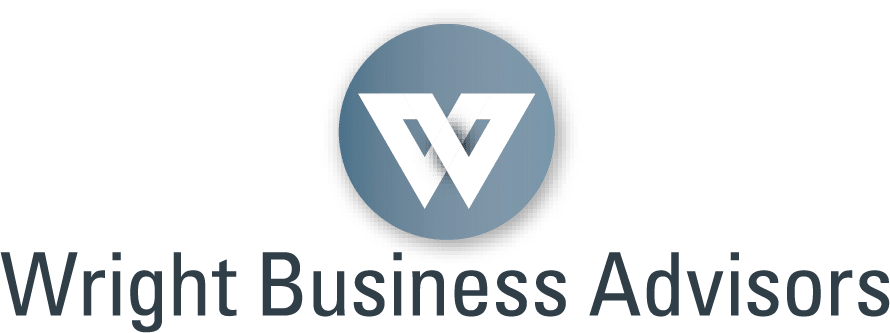
Selling A Business In Denver
1. What do you do as a business broker to earn your commission?
Probably the most frequent of all the FAQs is how much are your fees, and what do you actually do to earn your fees? Of course, these are great questions and were my first questions when I sold one of my businesses using a Business Broker.
Selling a business is a complex process. As Business Brokers, we help you at every stage, from setting a price to marketing your business, to closing the sale.
We Keep You Focused on Running Your Business
In addition to keeping confidentiality, hiring a professional Business Broker allows you to avoid distractions and keep the momentum going as you continue to focus on running your business, as we’re actively qualifying prospective buyers and aggressively marketing your business.
Code of Ethics
The Code of Ethics for Business Brokers enacted by the Board of Directors of the International Business Brokers Association (IBBA) is a part of the bylaws as a means of establishing uniform ethical practices when providing business brokerage services for clients and customers.
Pricing the Business
The selling process typically begins with the determination of the most probable selling price based on several factors using a variety of methods (See What is My Business Worth?). We often make recommendations to help enhance the “salability” of the business and increase your net proceeds.
Marketing
Next is the marketing plan. Proper marketing maintains anonymity and protects you as a seller while increasing contact with the right candidates. We understand the when’s, where’s and how’s of advertising your business while being discreet – which medium, plan, and frequency will work best for your business and market.
Negotiating
We help you objectively evaluate every buyers’ proposal and negotiate favorable terms on your behalf.
Nursing the Process, Renegotiating, and Closing
There is a saying in the industry that a deal must fall apart a few times before it closes. We continually help to support progress in the due diligence process and serve as a close sounding board and help keep emotions in check for both parties. Another name for a Business Broker is a Business Intermediary.
Receiving Expert Advice
Selling your business should be the largest financial decision you will ever make in your life. Our smaller Main Street brokerage transactions exceed $300,000 and our Lower Middle Market (Mergers & Acquisitions) transactions are as high as $25 Million. If you had a $250,000 legal question, I’m sure you wouldn’t deal with it without the advice of an attorney.
Our immense experience allows us to find the right buyer for your business and maximize your proceeds. The solid network of business partners coupled with our proven marketing strategy and buyer pool helps ensure the success of finding a suitable buyer.
More specifically, here is what is involved in the proper sale of your business:
INITIAL CONSULTATION
- Collection of Initial Seller Information and needs analysis
- Description of Selling Process, Broker Investment, and Representation of Seller
VALUING THE BUSINESS
- Collection of: P&L Statements (3 years); Balance Sheets (3 years); Federal Tax Returns (3 years); Furniture, Fixtures & Equipment (FFE) List, Lease/Real Estate Summary; Monthly Revenue Statements (12 months); Franchise Agreement (if any)
- Cash Flow & ROI Analysis
- Search WBA and National Database Comps
- Wright Business Advisors (WBA) Broker Opinion of Value
PREPARING TO SELL
- Approval of the WBA Listing Agreement
- Collection of Corporate or LLC Resolution (if necessary)
- Collection of Company Checklist and Questionnaire and Seller’s Disclosure
- Terms Pre-Qualification / DSCR
- Finalize Selling Price and Terms
PACKAGING AND MARKETING THE BUSINESS
- Prepare the Marketing Plan
- Prepare a blind company ad for multiple sites
- Prepare comprehensive Confidential Business Report (CBR)
- Prepare Internet Listing and Submission Plan
- Prepare Direct Mail Campaign, if appropriate
- Prepare Newspaper Advertisement, if appropriate
- Prepare Non-Disclosure Agreements
- Prepare Strategic Partner Confidential Package
- Enter data into CRM and set up Confidential Data Vault
QUALIFYING BUYER PROSPECTS
- Collect Confidential Buyer Profile
- Collect Mutual Non-Disclosure Agreement
- Interview Prospects & Pre-Qualify
- Collect Prospect Financial Summary
- Post Qualification
SHOWING AND NEGOTIATING
- Conduct preliminary discussions
- Show business
- Prepare Seller for Buyer Meeting
- Follow-up and Initial Due-Diligence
- Assist in Deal Negotiations
PREPARING THE LETTER OF INTENT (LOI) AND ASSET PURCHASE AGREEMENT
- Assist in preparation of draft agreements
- Assist in the drafting of addendums
- Prepare transaction timelines
- Prepare due diligence list
- Assist in negotiation of Seller’s Promissory Note terms etc., if applicable
- Assist with drafting of counteroffers
CONDUCTING DUE DILIGENCE
- Closing Checklist development and contingency sign-off
- Collection of due diligence materials
- Due diligence assistance
ASSISTING WITH FINANCING
- Recommendation of SBA Lenders
- Pre-Qualification of Business and/or Buyer
- Assisting with SBA Lender Representative
- Assist with negotiation of Seller Note, if applicable
- Recommendation of Third-Party Sources, if appropriate
CLOSING THE TRANSACTION
- Drafting instructions to Closing Agent
- Prepare documentation/settlement statements for Closing Agent
- Assist with obtaining franchise approval, if applicable
- Assist with obtaining a lease assignment, if applicable
- Assist with developing an orderly turnover plan
- Assist with the allocation of purchase price
- Negotiate closing agent fees
- Expedite closing agent documentation requirements
- Proof/revise closing documents
- Closing coordination
2. What will attract buyers to and increase the value of my business?
There are a variety of buyers out there for all different industries and business sizes. Some want to leave their existing situation and “buy a job”, while some purchase for strategic reasons, which are oftentimes other than for reported earnings. Premiums are paid for factors that are important to them. Many buyers, however, are extremely concerned about profitability and want to ensure that they, as new owners, will not negatively affect the profits.
Buyers want sellers to be forthright and transparent to avoid unwanted surprises. Sellers should be able to explain to the buyer the future benefits of owning the business and keep the momentum, organization, profitability, strategic planning, and systems that are in place running as normal. Buyers and lenders alike, typically want to see that the sellers have “skin in the game” and often ask the seller to carry some form of a note. During the transition period, buyers typically want sellers to stick around a while and receive some training from the seller to help ensure a smooth transition with the in’s and outs of the business, customer, employee, and vendor relations, etc.
Having proper financial documentation and being able to explain the future earning capacity of a business is critical to supporting maximum value. The value drivers for inexperienced buyers are not as complex as an experienced or strategic buyer and they typically are willing to consider buying a variety of businesses that they find interesting, have “clean books” and records, are stable, and have a positive market future and income potential. They are oftentimes unhappy with the status quo and want to be their own boss.
Experienced buyers that will pay a premium will often look for the following criteria:
- Strong systems/management team in place
- Predictable and recurring revenue and cash flow trend
- Consistent financial data
- Scalability (growth potential)
- Larger companies
- Specific industries
- Market power (niche with high barriers to entry)
- High customer satisfaction
- Businesses that are not dependent upon single customers, the employees, the owner, and their suppliers
There are other qualitative factors affecting value such as access to capital, customer concentration, demographics, level of competition, employee stability, geographical distribution, legal issues, location, lease terms, management depth and ability, the strength of assets, some seller financing, stability, systems in place, terms of the sale, tax considerations, etc. Corporate buyers often buy smaller companies (consolidate) to increase market share. Check out my value drivers assessment to see where your business currently stands.
3. What should I do to prepare for selling my business?
A well-prepared business “exit strategy” will increase the odds of a fair, equitable, and timely sale, with favorable terms. A well-prepared business involves selling a business when it is on the upswing. However, considering all factors and important value drivers, one cannot emphasize enough how important it is to have good books and records. Buyers and lenders will peruse your financials for the last three years and will want to see the tax returns, income statements, and balance sheets, and these must support the selling price. Also, any other records, such as employee files, customer/supplier lists, contracts in place, business reporting forms, the condition of the assets, the leases etc. If there is real estate involved in the sale, sellers will need to give a copy of any current appraisal (if performed in the last three years), the layout of the building, and property survey.
4. How will you ensure confidentiality in the sale of my business?
As business owners and former sellers, we understand the importance of confidentiality and take it very seriously. We are diligent to keep the privacy of our clients. If you as a seller choose to keep the sale of your business confidential (and most do), we begin with ensuring that buyers are properly screened. Additionally, our agreement with our Seller’s requires all potential buyers to provide information on their general background, a Disclosure of Financial Ability, Confidentiality Agreement, and Acknowledgement of Working Relationship be obtained before disclosing the name and location of the Seller’s Business.
